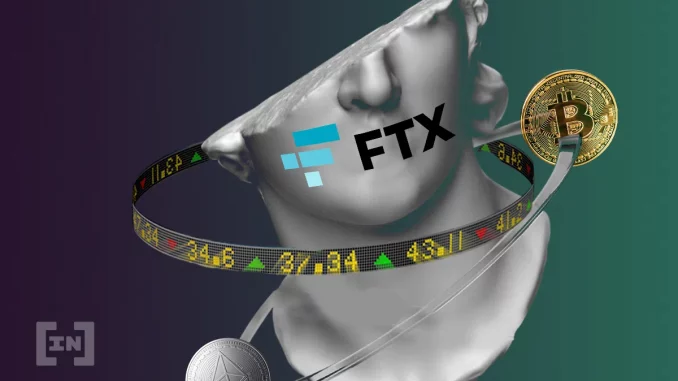
Bahamas-based crypto exchange FTX is pushing the Commodities and Futures Trading Commission to grant it a license to offer bitcoin derivatives to retail investors in a move opposed by traditional exchanges.
The CEO of the Chicago Mercantile Exchange, Terrence Duffy, believes that the move would create “market risk” while testifying at a hearing on Capitol Hill in May.
CME offers a bitcoin derivative product designed to compete with FTX. Exchanges such as CME and Intercontinental Exchange cite the need for consumer protection for products in which retail investors could lose big, with the potential for unwound leveraged positions leeching into the broader economy.
Both exchanges have petitioned the CFTC in writing regarding their concerns about a specific aspect of FTX’s proposal. Specifically, the automation play.
The heart of the matter
FTX first introduced a plan in April to use algorithms instead of brokers to ensure that investors get the assets they’ve purchased and sellers get the funds due to them. This would remove the need for plumbing previously used to clear trades, leaving brokers jobless should the automated strategy be adopted more broadly. FTX CEO Sam Bankman-Fried believes this is a way to modernize American markets while incorporating robust risk mitigation.
Bankman-Fried said in an interview that the exchange is committed to comprehensive customer protection. He said if anything, the company’s new protections, disclosures, and suitability checks exceed that of existing futures products. Futures contracts are a type of derivative product allowing investors to bet on the future price of a share, or in FTX’s case, cryptocurrency prices.
But incumbents are kicking up a row, saying that brokers play an essential role in margin calls. Wall Street banks and specialist firms play the role of brokers in today’s exchanges which is a lucrative business. They are accountable to the CFTC and must warn investors about risky derivative products.
Speed of automated liquidations a cause for concern
In leveraged trades, investors supply capital and borrow funds from a platform like FTX to invest in bitcoin. Gains are magnified when bitcoin’s price goes up, netting the investor a profit. Suppose the price of bitcoin decreases to a point where the investor’s initial capital, called margin, becomes insufficient to cover his bitcoin purchases. In that case, brokers advise the investor that he needs to deposit more cash within a day or so. This is called a margin call. If the investor does not put up more cash, FTX liquidates his position and takes his money.
Dennis Kelleher of Better Markets says the liquidation feature is risky for investors. Presently, if an investor fails to meet a margin call, the broker can grant them more time or loan them money. FTX’s system, on the other hand, is designed to liquidate an investor’s position as soon as the margin is insufficient, making it difficult for the retail investor to understand his position.
FTX argues that the system would notify investors in advance of their impending liquidation and would close out their position in stages, giving them enough time to react. The company also has $250 million to cover losses during an extended market downturn.
Disclaimer
All the information contained on our website is published in good faith and for general information purposes only. Any action the reader takes upon the information found on our website is strictly at their own risk.





Be the first to comment